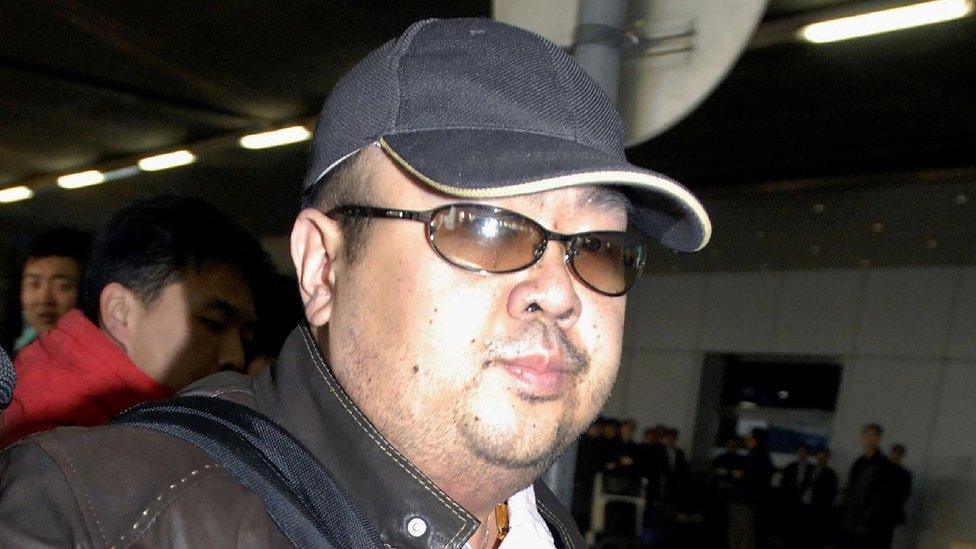Kim Jong-nam: Vietnamese woman freed in murder case
- Published
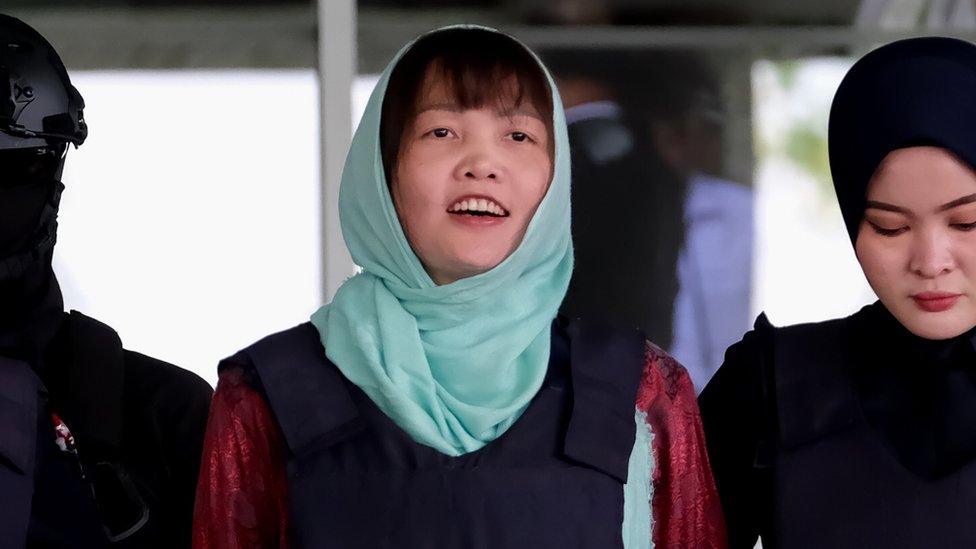
Doan Thi Huong is now expected return to Vietnam, her lawyer says
The Vietnamese woman accused of the 2017 killing of Kim Jong-nam, the half-brother of North Korea's leader, has been released, her lawyer says.
Doan Thi Huong accepted a deal with Malaysian prosecutors last month and pleaded guilty to a lesser charge of "causing injury".
Ms Huong and Indonesian Siti Aisyah were accused of smearing VX nerve agent on Mr Kim in Kuala Lumpur airport.
Both women denied murder and said they thought they were part of a TV prank.
They said they were tricked into carrying out the killing as innocent victims of an elaborate North Korean plot.
Ms Huong is expected to fly back to Vietnam later on Friday.
"I met Doan yesterday at the prison to give her new clothes and a pair of shoes," Hisyam Teh Poh Teik, one of her lawyers, told BBC Vietnamese.
"She was obviously very happy to be released and looks forward to being reunited with her family."
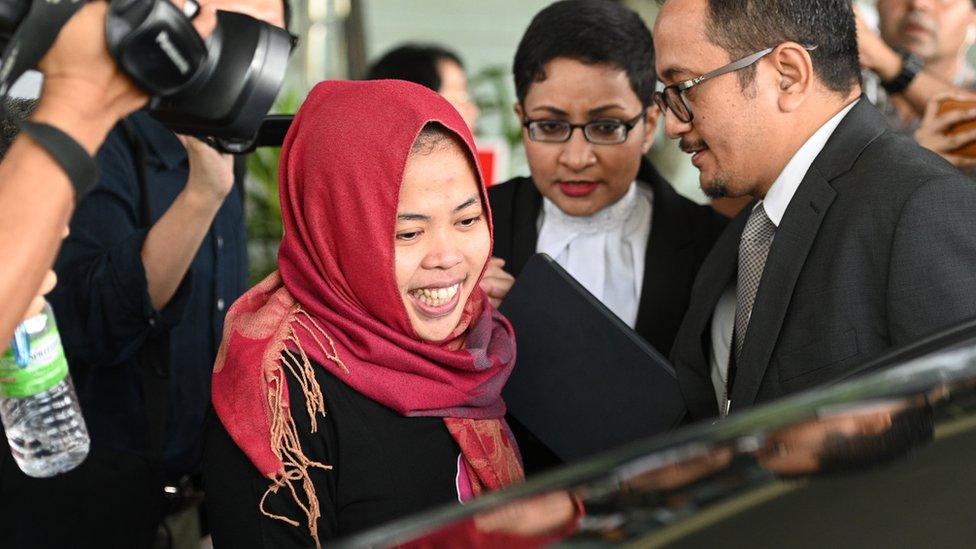
Charges against the other defendant Siti Aisyah (centre) were dropped in March
Her co-defendant Siti Aisyah was freed in March after charges against her were dropped. The prosecution did not provide a reason for the decision.
How did the murder happen?
Kim Jong-nam, the estranged half-brother of North Korea's leader Kim Jong-un, had been waiting to board a flight from Kuala Lumpur to Macau on 13 February 2017 when two women approached him in the departure area.
CCTV footage showed one of them placing her hands over his face, then both women leaving the scene.
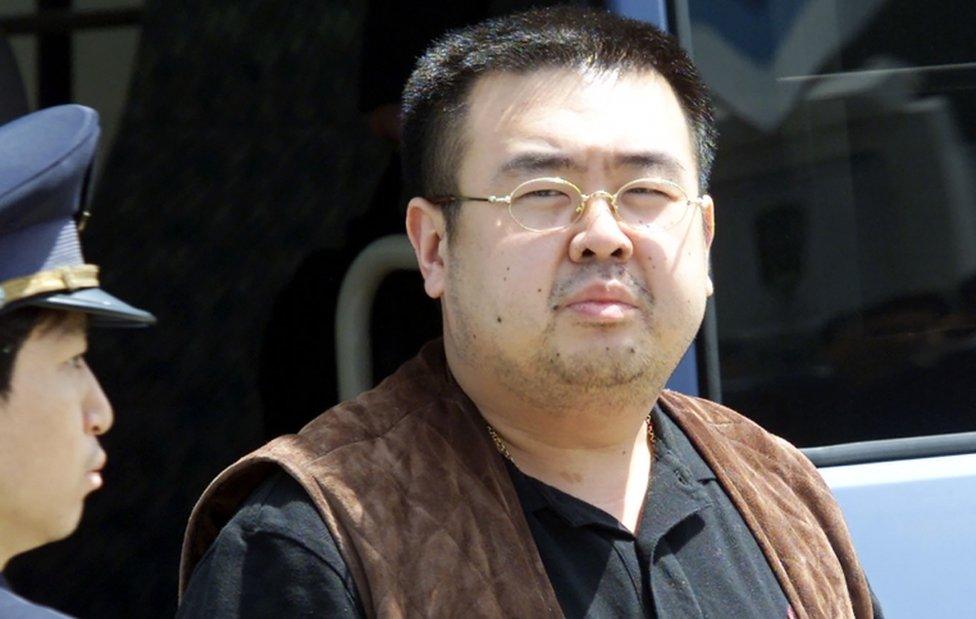
Kim Jong-nam, pictured in 2001, the late half-brother of North Korean leader Kim Jong-un
Mr Kim died on the way to hospital from what was later found to be exposure to the nerve agent VX, one of the most toxic of all known chemical agents.
North Korea has fiercely denied any involvement in the killing, but four men - believed to be North Koreans who fled Malaysia on the day of the murder - have also been charged in the case.
They remain at large despite an Interpol "red notice", equivalent to an international arrest warrant.
Who was Kim Jong-nam?
Kim Jong-nam was the older half-brother of North Korea's authoritarian ruler, Kim Jong-un.
He was once seen as a future leader of the isolated country, but when his father Kim Jong-il died, was bypassed in favour of the younger Kim.
He was largely estranged from the family, and spent most of his time overseas in Macau, mainland China and Singapore.
He had spoken out in the past against his family's dynastic control of North Korea, and in a 2012 book was quoted as saying he believed his half-brother lacked leadership qualities.
- Published16 August 2018
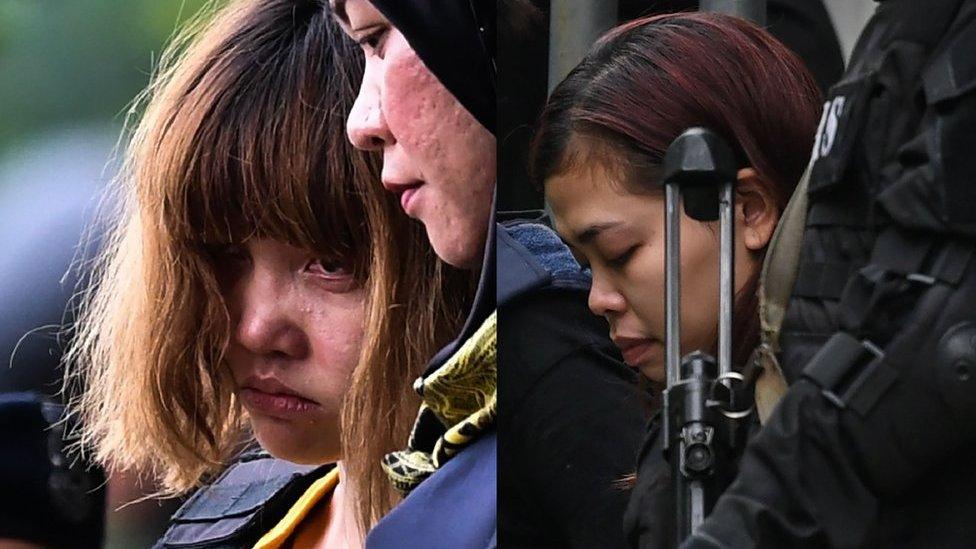
- Published25 February 2017
